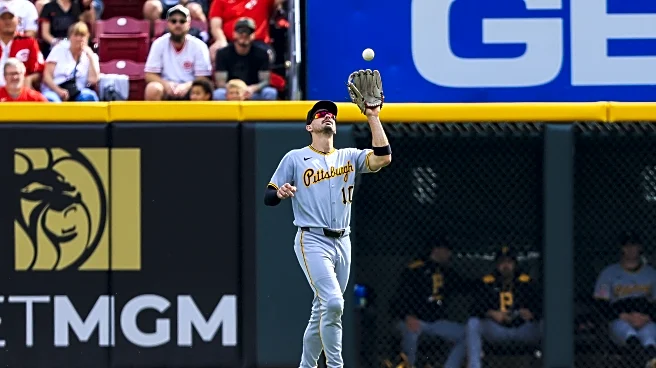What's Happening?
U.S. Vice President J.D. Vance is visiting Israel to oversee the implementation of a ceasefire agreement between Israel and Hamas. This visit comes amid concerns from the Trump administration that Israeli
Prime Minister Benjamin Netanyahu might dismantle the deal. The U.S. is actively involved in ensuring the ceasefire holds, with Vance, along with Steve Witkoff and Jared Kushner, working to prevent a full-scale assault on Hamas. President Trump has warned that Israeli forces could 'eradicate' Hamas if the violence continues. The U.S. is backing Israel's claims that Hamas is violating the agreement by delaying the return of Israeli hostages' bodies. The visit also includes discussions on the strategic tunnel network in Gaza, with a U.S. proposal to begin a pilot project in Rafah to clear and seal these tunnels.
Why It's Important?
The visit by Vice President Vance underscores the significant role the U.S. is playing in Middle Eastern geopolitics, particularly in the Israeli-Palestinian conflict. The U.S. aims to maintain stability in the region and prevent further escalation of violence, which could have broader implications for international relations and security. The involvement of high-level U.S. officials highlights the importance of the ceasefire to U.S. foreign policy and its commitment to supporting Israel while also managing the delicate balance of power in the region. The outcome of these efforts could impact U.S.-Israel relations and influence future diplomatic strategies in the Middle East.
What's Next?
The U.S. and Israel are working towards the next phase of the ceasefire agreement, which involves the introduction of a foreign military force to oversee Hamas's disarmament and the demilitarization of Gaza. The success of this phase is crucial for the reconstruction of Gaza and the return of hostages' remains. The international community will be watching closely to see if the ceasefire holds and if the strategic tunnel network in Gaza is effectively neutralized. The U.S. will continue to play a pivotal role in these developments, with potential implications for its diplomatic relations in the region.










